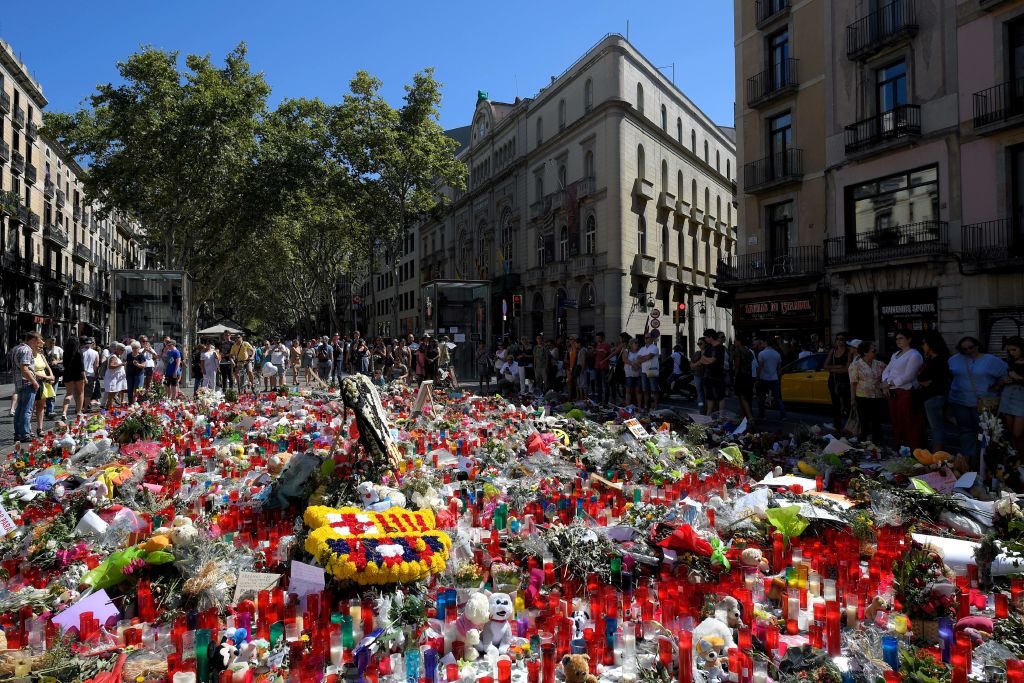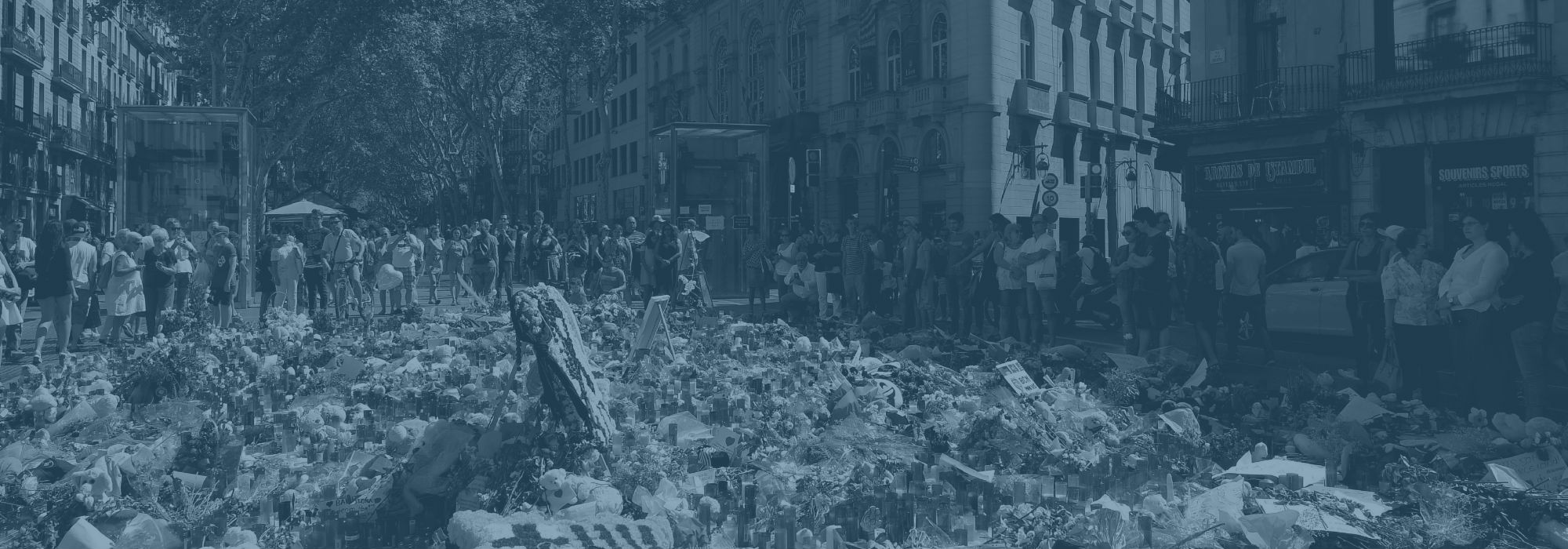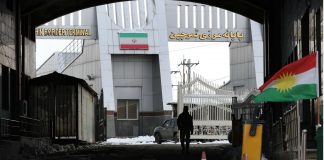By Jacob L. Shapiro
Paris. Nice. Brussels. London. Manchester. Europe’s is a long and sordid catalogue of terrorist attacks. The incidents in Barcelona and Cambrils – both in Spain, both within the past week, both claimed by the Islamic State – are only the latest entries.
Terrorism is a phenomenon with which Europe is all too familiar. Consider World War I. The proximate cause of the conflict was an act of terrorism – the assassination of Archduke Franz Ferdinand in Sarajevo. Consider the year 1972, when, in Munich, Black September, a secular Palestinian militant group, killed members of the Israeli Olympic team. That same year was also among the bloodiest of the Troubles of Northern Ireland. The situation was so bad that then-U.S. President Richard Nixon asked the United Nations “to combat the inhuman wave of terrorism that has been loosed on the world.”
The U.N. wasn’t able to do much. Just 13 years later, terrorist organizations carried out multiple attacks on civilian targets: TWA Flight 847, an Italian cruise ship, airports in Vienna and in Rome. In 1986, the Libyan government, led by Moammar Gadhafi, sponsored an attack at a club in West Berlin – to which the U.S. responded with airstrikes. Ronald Reagan said 1986 was the year “the world, at long last, came to grips with the plague of terrorism.” Two years later was the Lockerbie bombing.
The times we live in are not special. Terrorism has long been a part of European life.
Terrorism Is Just Terrorism
In fact, more people died from terrorist attacks in the 1970s and 1980s than in any recent decade. But, notably, in the 1990s and 2000s, terrorism-related fatalities in Western Europe decreased substantially. It’s hard to know for sure why this was so. Europe wasn’t any more peaceful in the 1990s than in the previous decades, as the Balkan wars made abundantly clear. Perhaps the end of the Cold War indirectly had an effect.
Whatever the reason for their remission, casualties have since risen dramatically, especially in the past 10 years. There was a lull before the relapse; the United States bore the brunt of the Islamic world’s attention after 9/11. But when the revolutions al-Qaida hoped to incite failed to launch, Islamists found new targets in Western Europe. Partly this is because of the influx of Muslim immigrants, some of whom struggled to integrate to the countries to which they migrated. Europeans consequently became more nationalistic, making Muslims the object of their resentment. Islamists saw this as a major opportunity for recruitment.
The threat posed by Islamist terrorism is undeniable, but the attention it receives exceeds its significance. Technology is certainly a factor in this regard. In the 1970s, TV journalism changed the way we experienced war. War has always been brutal and unsparing, but seeing it made it real in ways it had not been before. The 24-hour news cycle similarly magnifies terrorism. 9/11 was shocking by any measure, but that an entire nation watched the Twin Towers fall in real time personalized the attack in previously unknown ways. With the rise of social media and the advancement of smartphone technology, virtually anyone is able to document the horrors of an attack, and every group that uses terrorism has that much larger a platform to share its grisly acts. How much more grisly and effective might the IRA or ETA have been if they had been able to use YouTube and Twitter?
Other factors abound. Some may argue that the religious motivations of Islamist terrorism add to its barbarity, but that misses the point. Terrorism is a tactic, and those who employ it are necessarily devoted to their causes. Some may argue that Islamist terrorism is tantamount to a foreign attack and, as such, cannot be compared to domestic affairs such as Irish civil unrest or Basque separatism. But civilians die either way. At some point, the distinction among the varietals of terrorism isn’t helpful. At some point, terrorism is just terrorism. Overemphasizing its impact is what justifies its employment.
The Virtue of Self-Determination
What happened in Spain last week, however, is not just about trends in terrorism on the European continent. The attacks in Barcelona and Cambrils did not just occur in Spain. They occurred in Catalonia, a region of Spain that may not be a region of Spain for much longer. Nationalism has been rising not just in Catalonia but throughout Europe, accelerated by the 2008 financial crisis. But nationalism is particularly pronounced, even resilient, in Catalonia. All attacks matter. But that the Spanish attacks occurred where they did and when they did matters geopolitically.
Months ago, the Catalan government announced plans to hold an independence referendum on Oct. 1 against the expressed wishes of the Spanish government in Madrid. This will be the second such referendum in three years. The first passed with more than 80 percent support, but less than half the population voted. Various opinion polls show that if this referendum does indeed go to a vote, it promises to be a close one.
Relations between the regional government in Catalonia and the Spanish government in Madrid have been strained for years. Spain has threatened to punish any Catalan official enabling what Madrid sees as an illegal referendum. In a not-so-veiled threat, Spain’s army chief said in 2014 that his forces were ready to uphold the Spanish Constitution in Afghanistan or Valencia. Catalonia’s police chief resigned in July, ostensibly because he does not support independence – but Catalonia’s interior minister insisted a week later that Catalonia’s police forces would facilitate the upcoming referendum.
It is unclear exactly what the Catalan government’s objective is. Is the referendum a ploy to try to provoke a Spanish overreaction, thereby increasing support for the Catalan cause? Or does the regional government mean to go through with the referendum, potentially challenging the legitimacy of the Spanish state and creating a hard set of decisions for Madrid on how to respond? Supporters of Catalan independence point out that Catalonia generates about 20 percent of Spain’s gross domestic product and that Catalonia has succeeded in reducing its budget deficit in recent years to just 0.9 percent of GDP in 2016. Critics of Catalan independence point out that Catalonia’s 35 percent debt-to-GDP ratio and the various impositions Spain and the EU could impose on Catalonia make independence a moot point: Catalonia wouldn’t be able to survive on its own.
 People display flowers and candles to pay tribute to the victims of the Barcelona and Cambrils attacks on the Rambla boulevard in Barcelona on Aug. 22, 2017. LLUIS GENE/AFP/Getty Images
People display flowers and candles to pay tribute to the victims of the Barcelona and Cambrils attacks on the Rambla boulevard in Barcelona on Aug. 22, 2017. LLUIS GENE/AFP/Getty Images
And now it appears that the Islamic State has joined the fray, if only to make its enemies experience a little more chaos. Already both sides of the Catalan independence issue are exploiting the attacks for political purposes. Independence supporters are suspicious that the central government is using them to crack down on all political activity and thus to prevent a referendum from even taking place. (Madrid has, in fact, beefed up security in Catalonia.) Spanish leaders such as Prime Minister Mariano Rajoy, meanwhile, hope the attack will enable them to brush the Catalonia issue under the rug, appealing to the shared fight against IS as reason to let bygones be bygones.
The secession issue is simple, if not easy. Spain thinks Catalonia is part of the Spanish nation. Catalonia is not sure, and a significant faction of Catalans, invoking the virtues of self-determination, want to decide as much for themselves.
Fair enough, but this is the kind of environment in which the Islamic State’s tactics thrive. Remember that the group rose in Iraq not from strength but from the strife between Sunnis and Shiites. Catalonia and Spain aren’t Sunnis and Shiites, of course, but for the Islamic State, division is an opening, a weak point that it probes for nefarious ends.
The Moroccan nationals who plowed into the civilians in Barcelona and Cambrils set in motion a chain of events that now must be accounted for. Perhaps the Catalan government meant for the referendum to be a ploy to gain concessions for greater autonomy from Madrid, but now that Spain is using the attacks to crack down, the referendum must go forward no matter what. Or perhaps the excuse of an Islamist attack makes the Spanish government act in a way it wouldn’t have without the guise of ensuring security. Whatever the case may be, the situation in Catalonia was already dynamic, and attacks there only introduce more variables that may well shape its outcome.
An Intersection
And yet there are even larger forces at play. Spain does not belong to Europe, at least in the opinion of the Islamic State. Spain is a Muslim land. The Moors ruled this area, known to them as al-Andalus, intermittently from the 8th century to the 15th century, when they were at last driven out entirely. The Islamic State sees Spain as a place to be reclaimed. And it makes sense for the Islamic State to reclaim it, at least from its leaders’ point of view. Islam is the only force in the Arab world that has ever united all its tribes under a single banner. With the Islamic State’s caliphate shrinking, surrounded as it as on all sides by enemies in the Middle East, it needs to inspire its rank and file. Successful attacks, especially in lands it used to control, fit the bill perfectly.
This illustrates the troubled relations between Europe and the Middle East. These two regions have always been connected to each other, and what happens in one affects the other. Instability and violence in the Middle East has led to Muslim migration to Europe. Muslim migration has, in turn, stoked nationalism, sometimes to electoral effect, and has even led to limited European involvement in Muslim wars. This reinforces the belief that Muslim immigrants can’t be accepted by their new countries and wouldn’t want to be even if they could.
In the middle of all this, then as now, is Turkey, a rising power in the region, an area at which Europe and the Middle East meet. Whichever government occupies present-day Istanbul has been able to project power in every direction, and so has been uniquely suited to arbitrate, or suffer under, European and Middle Eastern interests. It was, for example, ground zero in negotiations to house many of the Middle Eastern immigrants whom Europe could not. So far it has largely abstained from the fight against the Islamic State, but a country of its importance, and of its potential, probably can’t stay neutral forever. In the clash of European and Islamic civilizations, Turkey cannot help but be caught in the middle.
This is what makes the attacks in Spain so notable. Terrorism in Western Europe has been steadily increasing since about 2005. Nationalism has been rising in Europe since around the same time. The age-old conflict between Europe and the Middle East, Christendom and Islam, is simmering once more. What happened in Spain last week intersects all three.









